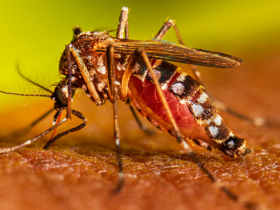United States: Human parainfluenza virus type 3 (hPIV3) is a formidable respiratory adversary, particularly notorious among children for inducing severe coughing fits and breathing obstructions, commonly termed croup. In the elderly and immunocompromised individuals, including those undergoing transplants or battling cancer, this infection escalates to a perilous level.
Although vaccines against hPIV3 are under development, none have yet reached availability.
In a seminal paper published on June 10 in the journal Nature Microbiology, investigators from Vanderbilt University Medical Center and Stanford University School of Medicine elucidate the isolation and synthesis of monoclonal antibodies that neutralized hPIV3 in vitro and within an animal model, conferred protection against infection and resultant pathology, as per VUMC News.
These antibodies exhibited specificity for two viral surface glycoproteins, which facilitate hPIV3’s cellular invasion within the respiratory tract. The research implies these antibodies could serve as viable antiviral therapies and provide significant insights for vaccine formulation.
“The identification of these novel antibodies reveals the mechanisms by which the body can counteract this major respiratory virus, with the most potent antibodies being viable candidates for development into preventive or therapeutic agents,” stated the paper’s principal author, James Crowe Jr., MD, according to VUMC.
Crowe, who holds the Ann Scott Carell Chair at VUMC, is a University Distinguished Professor of Pediatrics and the director of the Vanderbilt Vaccine Center. He, alongside Theodore Jardetzky, PhD, a professor of Structural Biology at Stanford University School of Medicine, led the research endeavor.
The paper’s co-primary authors were Naveenchandra Suryadevara, PhD, a senior staff scientist in the Crowe lab, and Ana Rita Otrelo-Cardoso, PhD, a research scientist at Stanford. Additional contributors from VUMC included Nurgen Kose, Elad Bernstein, PhD, Rachael Wolters, DVM, PhD, Laura Handal, and Robert Carnahan, PhD.















